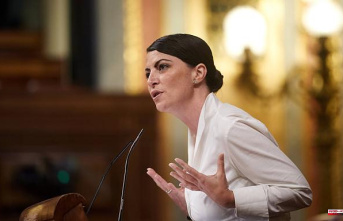The Civil and Criminal Chamber of the Superior Court of Justice of Madrid has revoked the acquittal of Eugenio Pino and condemned him as responsible for a crime of revealing secrets to one year in prison, a fine of 7,200 euros and to compensate Jordi Pujol Ferrusola in the amount of 2,000 euros in the procedure popularly known as the 'pendrive case'.
The magistrates that make up the Chamber have upheld the appeal filed by Pujol Ferrusola on understanding, contrary to the criteria of the Provincial Court of Madrid, that Eugenio Pino, at the time of the events deputy operational director of the National Police Corps, did committed a criminal offense when he provided the CNI, the UDEF and the Court of Instruction No. 5 of the National High Court with a 'pendrive' with information on Jordi Pujol Ferrusola without warning "at any time to the judicial authority of the illegal origin of the evidence ».
In the first instance, the judges interpreted that the indiscretion penalized by the second paragraph of article 197.3 of the Penal Code "cannot be committed by police or public officials who have accessed information that invades the privacy of a citizen by reason of their position." . In the opinion of the trial judges, the only duty of secrecy that Eugenio Pino could have infringed would have been the professional one, "and the simple fact of channeling or directing the information can never fulfill the requirements of the type, in accordance with the ordinary guidelines of confidentiality and secrecy of the police action, to the unit in charge of carrying out the investigation”, which is why they decided to agree to his acquittal.
The Civil and Criminal Chamber disagrees with this interpretation and maintains that "from the moment in which the accused did not comply with the duty that he had as a public official to prevent the 'pendrive' from having any path, but on the contrary, he proceeded with a spurious use of its content, proceeded to disseminate, reveal or transfer to third parties data and documentation belonging to the privacy of Jordi Pujol Ferrusola with an evident intention of harming him”, simultaneously putting at risk the investigation carried out by the National Court.
Pino's police status, the Madrid TSJ magistrates clarify, does not exempt him from criminal responsibility for the crime of revealing secrets, as the Provincial Court maintained, nor does the fact that his actions were limited to handing over to others members of the Police the 'pendrive' "under the so-called formula of 'for the purposes that proceed', because, we repeat - add the judges -, no effect could or should produce" the reports contained in a computer device that should never have been incorporated into a court proceeding.
The judges of the Provincial Court considered in the trial of instance that the actions of Eugenio Pino, "beyond procedural or formal irregularities", were protected, in his capacity as a police officer, by the fulfillment of the duty to promote the prosecution of the crime.
Well, the ruling of the Civil and Criminal Chamber, against which there is an appeal before the Second Chamber of the Supreme Court, maintains the opposite when it states that there should be no loopholes in the police investigation: «The power of the State for the persecution and prosecution of illicit acts cannot use shortcuts. The exercise of the jurisdictional function only conforms to the constitutional model when it is based on the principles that define the right to a process with all the guarantees. The violation of the rights of the accused, either through an act of a criminal nature, or through the violation of his fundamental rights and freedoms, opens a crack in the very structure of the criminal process ».
The accused -add the judges-, "because of his status as a public official, where he occupied a very high level, he should have been subject to what is established in article 11 of the LOPJ and since he was aware of the illicit origin of the data and documentation contained in the 'pendrive', having refrained from giving it to anyone under any conditions”, including to organizations outside the judicial procedure, which reinforces the consummation of the crime of revealing secrets of article 197.3 of the CP.
And among that nobody to whom the flash drive should never have been delivered, is the National Intelligence Center. Such an extreme is included in Proven Fact No. 13 of the original sentence, where the personal confession of the accused is reported. "In his decision to disseminate the data that he knew was not supported by any lawful basis for obtaining it, the accused -states the resolution-, declares that he ordered another copy of the electronic device to be sent to the CNI, whose status as 'third party' admits not the slightest doubt."
The admission of this circumstance, which appears in the factual account of the original judgment and which was not denied, nor even questioned by the accused during the appeal hearing, "fulfills by itself -say the judges-, the violation of the duty of secrecy and custody to which Eugenio Pino was subject at the time of the events, and covers what is described in article 197.3 of the CP: the accused, knowing the illicit origin of the electronic device that contained abundant personal data of Pujol Ferrusola, ordered that they be made copies and arranged for them to be forwarded to different recipients. This culminated in a spurious use of the data stored on the flash drive, consummated directly with its delivery to third parties knowing the illegality of its capture.
7












